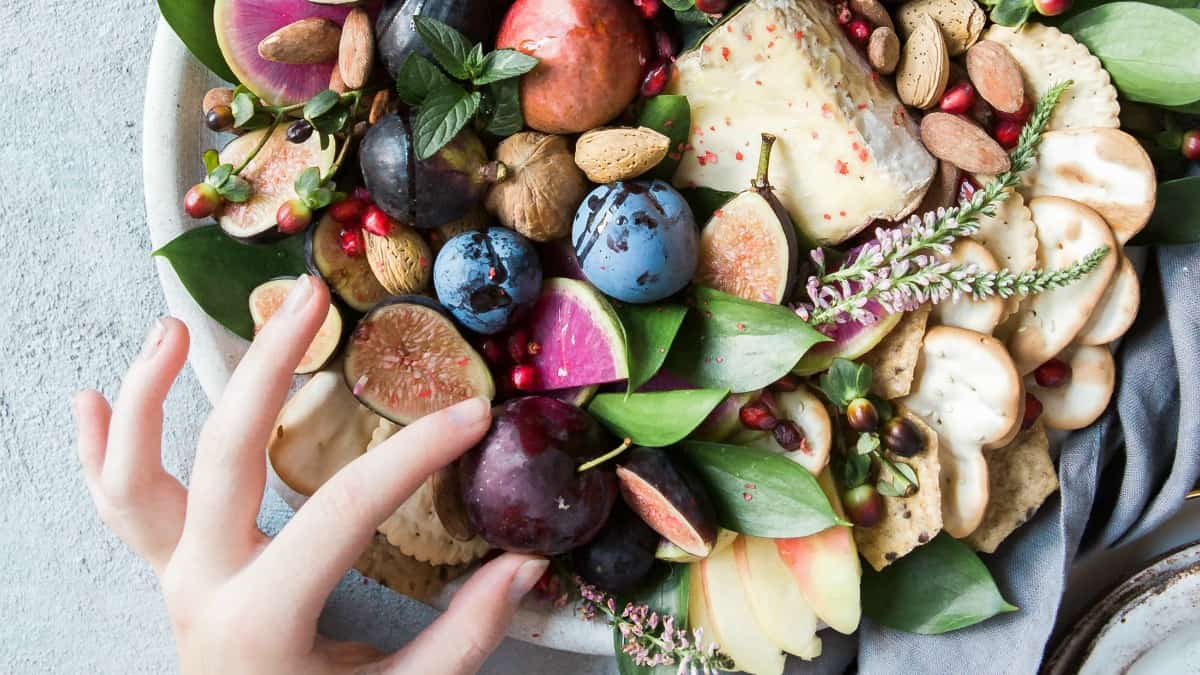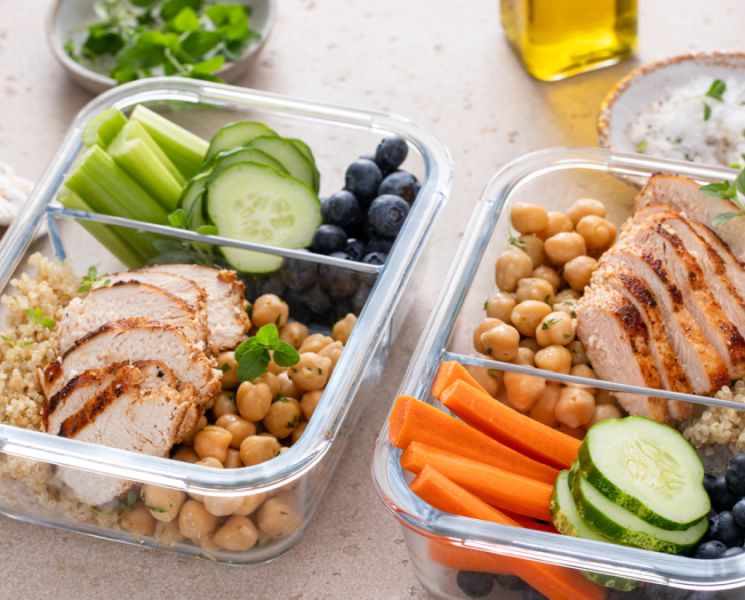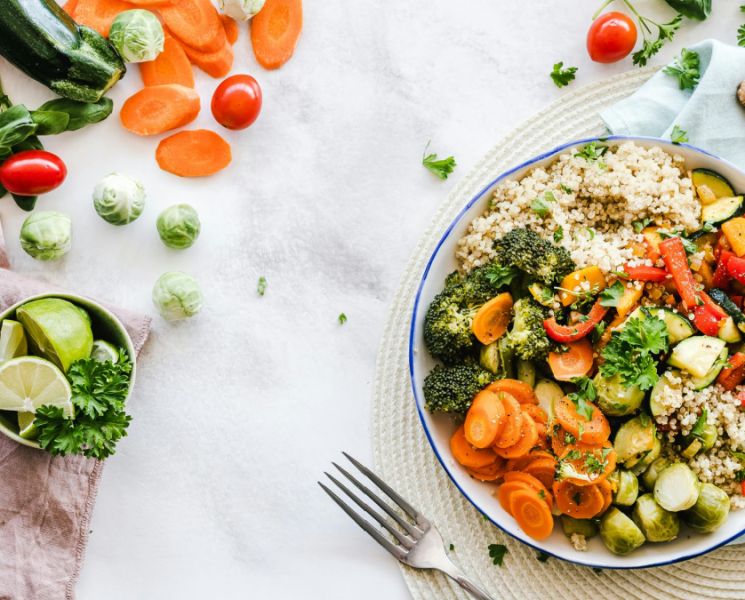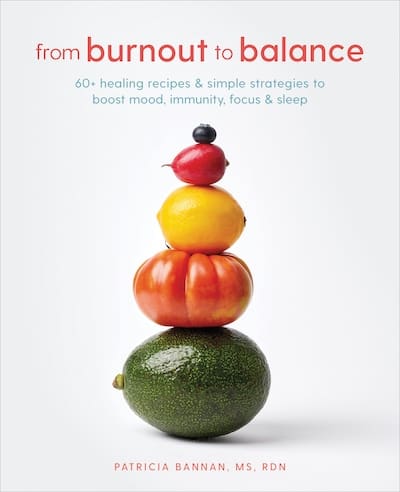This article originally appeared on Livestrong.com.
We all know how hard it is to resist holiday fare. Each winter season, we’re invited to get-togethers and face the ultimate struggle: choosing between our waistlines or the pies, casseroles and other delicious, high-calorie foods that lay gloriously before our eyes. And in all honesty, it’s almost impossible to escape the holidays without indulging a few times. So how do the pros do it? Read on for 10 strategies that nutritionists embrace this time of year.
1. Be as consistent as possible.
During the holidays, our normal routines get thrown off. Work schedules change and our eating habits get turned upside down. But maintaining your usual healthy eating habits between holiday feasting is key to staving off unwanted pounds. “Consistent habits on weekdays and weekends help people sustain weight loss,” says Elisa Zied, RDN, author of “Younger Next Week.” “I’ll have a healthy, whole-grain breakfast, a light lunch with a big bowl of greens and lean protein and some favorite holiday foods in small portions for dinner parties,” says Sharon Palmer, RDN, The Plant-Powered Dietitian, author of “Plant-Powered for Life.”
2. Get back on track immediately.
The key to not gaining weight during the holidays is an occasional treat rather than a week-long binge. “I maintain my weight by treating the way I eat the same as I do the rest of the year. And if I do overindulge, I avoid any feelings of guilt and simply resume my healthy eating immediately — whether it be the next meal or following day,” says Keri Gans, RDN, author of “The Small Change Diet.” “I also make sure my yoga practice remains strong, as it definitely helps to keep me mindful. However, if the overindulges start to add up, I definitely pull in the reins and remind myself that staying healthy is a lot better in the long run than another piece of cake.”
3. Enjoy a little of everything.
During those super indulgent holiday meals, keep portion size in mind. “I keep two important words in mind: ‘unique’ and ‘sample,’” says Bonnie Taub-Dix, RDN, creator of BetterThanDieting and author of “Read It Before You Eat It.” “I try to stick with foods that are special — like my Thanksgiving challah-day stuffing. And by limiting portion sizes I get a chance to have a little of everything.” Another strategy is to remember that you can always go back for more. “Choose what looks good and take bite-size portions to taste,” says Rebecca Scritchfield, author of the upcoming book “Body Kindness.” “And if you’re still hungry, you can always take more of what you loved the most.”
4. Amp up your workout.
It may be difficult to regularly work out during this busy season, but amping up the intensity of the workouts you do manage to squeeze in can help. “When it comes to holiday weekends, I like to amp up the intensity of my workouts. This allows me to at least feel more at peace with indulging a bit in the following days,” says Jim White, RDN, ACSM exercise physiologist and owner of Jim White Fitness & Nutrition Studios. “Adding intensity into your workout may mean less rest time between sets; adding in a cardiovascular component into a circuit, such as jump roping for one minute after every few exercises; or increasing the weight or reps of exercises.”
5. Eat a protein-rich breakfast.
While we’ve all heard that breakfast is the most important meal of the day, how much protein your morning meal includes is also important. Research shows that a protein-packed breakfast (containing 20 grams of protein) can reduce hunger-stimulating hormones more successfully than a high-carb breakfast. “Protein in the morning gives me the energy I need to stay fueled and sets the pace for balanced eating throughout the day (even when there are parties in the evenings). And I balance that protein with fiber and healthy fat for a well-rounded meal,” says Holley Grainger, RD, culinary nutrition expert and blogger at Holley Grainger Nutrition.
6. Limit (or avoid) alcohol.
Not only does alcohol add empty calories, it also reduces inhibitions and makes you more likely to overeat without realizing it. If you’re not going to miss a glass of wine (or two), a good weight-management strategy is to limit or just avoid them all together. “I typically choose not to drink alcohol. I don’t need it to have fun, and I don’t like how it lowers my self-control,” says author Rebecca Scritchfield. “Stay sober with sparkling water or hot water with lemon.” Or if you want to enjoy the occasional drink or two, try drinking a glass of water, sparkling water or tea between drinks to slow your alcohol consumption and stay hydrated.
7. Stay positive.
One way nutritionists avoid piling on the holiday pounds has more to do with keeping a positive mental attitude than sticking to a specific diet. “I don’t try to lose weight even when I feel I need to lose a few pounds. Plus, I allow myself to savor small bites of holiday-time indulgences rather than trying to avoid anything. Self-imposed guilt is not a good friend,” says Jackie Newgent, RDN, culinary nutritionist and author of “The All-Natural Diabetes Cookbook.” “When I’m headed to a holiday party where there will be an excessive ‘buffet’ of calories, I punch up my exercise beforehand — aiming for at least 12,500 steps rather than my usual 10,000 steps a day. Then there’s nothing to worry about if I slightly overindulge.”
8. Load up on fruits and veggies.
While possibly the most simple strategy, it might also be the most powerful: Balance your plate with plenty of fruits and greens. “I stick to that tried-and-true recommendation of filling half my plate with fruits and veggies. What’s on the rest of the plate? Whatever I enjoy most for that holiday meal! This is a natural way to help crowd out excess calories,” says Regan Jones, RD, of HealthyAperture. “I always offer to bring a fruit- or veggie-based dish when I’m attending a party or meal at someone’s home. I find it’s always a welcome addition to the meal and ensures I have a good balance on my own plate.”
9. Drink more water.
Water not only regulates your body temperature and lubricates your joints, but it also helps you manage your hunger and weight. “One essential tactic I use throughout the holidays is drinking at least 64 ounces (eight cups) of water during the day. Consuming enough water increases energy and can simultaneously decrease food cravings,” says Misti Gueron, RDN, medical nutrition therapist at the Khalili Center. And remember food sources of water, too. “Green vegetables, especially dark leafy greens, provide you with essential vitamins and minerals that help with mood and energy, increase satiety and add to your water and fiber intake for the day,” says nutritionist Jim White.
10. Keep healthy snacks on hand.
Keeping a healthy snack at the ready is one of the easiest ways to prevent overeating. “I always have a small snack to take the edge off my hunger before going to a party,” says nutrition therapist Misti Gueron. “A healthy, high-fiber snack like an apple or vegetable crudite often works because the added fiber is just enough to quiet illogical food temptations.” In addition to fiber, a snack with protein can delay your appetite and make you feel fuller longer. Something as simple as 30 pistachios has only 100 calories. Plus, you’ll get protein and fiber for staying power. Smart snacking takes the edge off your hunger without ruining your appetite, so you’re more apt to make mindful food choices when filling up your plate.





